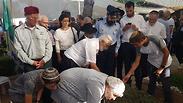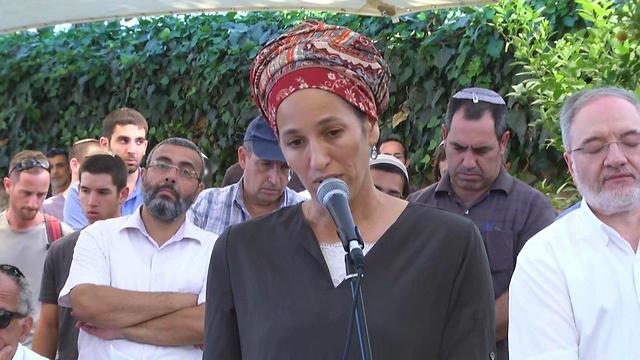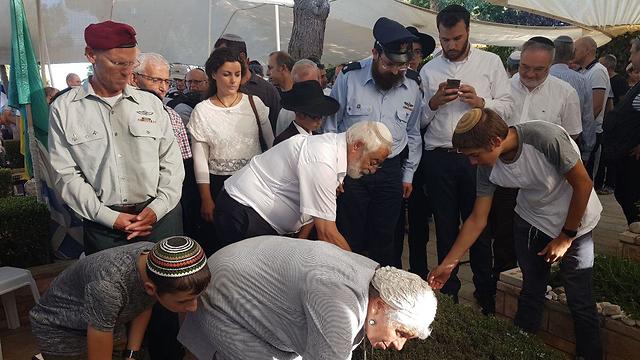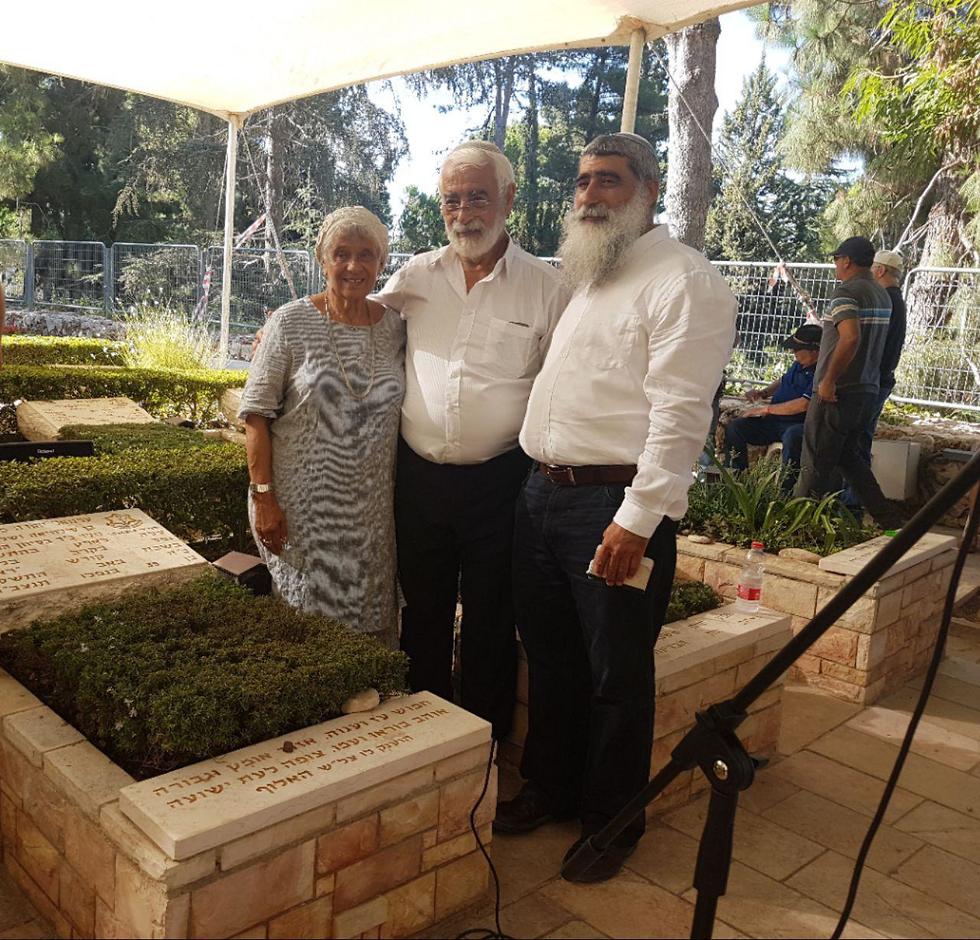
Recording of Lt. Col. Emanuel Moreno released
12 years after legendary elite unit commander was killed deep in Lebanon a recording was released of Emmanuel discussing unity, hope, in light of the Gaza Disengagement; Family members extol his virtues at gravesite.
About 100 family members and friends of Lt. Col. Emmanuel Moreno gathered around his grave in the Mt. Herzl military cemetery for a memorial ceremony marking the 12th anniversary of his death in the city of Baalbek in the Second Lebanon War .
A recording with the voice of Lt. Col. Emmanuel Moreno — the only IDF fallen soldier whose image is forbidden for publication even today — was publicized this evening for the first at Shaare Zedek Medical Center.
The recording was taken from a video taken at the ceremony where Moreno was granted his Lt. Colonel rank, 11 months before he was killed.
In the recording, Moreno spoke in the spirit of the Disengagement Plan that was happening at that time. "We are standing in the seam between the end of a year and the beginning of a new year. The conclusion of a year is not only a concise description of the sequence of events that took place, but a starting point for year of renewal.
“The past year was full of events and crises that threatened the unity of the nation,” he said referring to the Disengagement from Gaza and the forced removal of Jewish settlements.
To date, only two operations which Moreno participated in can be publicized including Operation "Poisonous Sting" during which the terrorist Mustafa Dirani was kidnapped from his home in Lebanon and another operation that was carried out to rescue the taxi driver Eliahu Gural, who was kidnapped by Palestinians and held in a cellar in Beitunia.
Maya Ohana Moreno, Emmanuel's widow, said at the memorial service: "I miss you all the time, I live missing you, but sometimes it overwhelms me as life moves on. You are not here to experience the amazing group you left here and they are screaming to the heavens. You are not here to kiss our children at night, nor tell them about your childhood... Nevertheless, you are so much here, inspiring people to believe that change is just a matter of effort and willpower."
Brig. Gen. Uri Gordin, former commander of the elite Sayeret Matkal unit and a comrade of Emanuel's, also spoke: "Immanuel and I came from different backgrounds, I am a kibbutznik and he is a Jerusalemite, I miss him, not just his memory, but him as a friend. When I remember Emanuel I remember his great passion for life and accomplishment, and every encounter with him was an experience that would sweep you along.
"He was a believer, on the one hand faith and on the other skepticism,” added Brig. Gen. Gordin. "He believed in the journey, in his friends and partners on the journey, and in his and our ability to fulfill tasks almost blindly. Sometimes, this belief almost made him go too far."
Among those present at the memorial ceremony were Major General Nitzan Alon, former head of the IDF Operations Command, Ground Forces Headquarters commander Brig. Gen. Uri Gordin, and Chief Military Rabbi Brig. Gen. Eyal Krim. MK Yehuda Glick (Likud) arrived attended as well.
"We thought that over the years his memory will have dimmed, or that the national heroes would change, but it seems that as time goes by, Emmanuel's discreet and introverted labor still leaves its mark after 12 years,” his brother Rabbi Shmuel Moreno told Ynet.
"Till today it is forbidden to publicize his photo and we never thought to publicize his voice. We turned to the military censor and asked if this would be possible and they did not object. It is important for us that the beliefs my brother held be heard," he added.
"There are three ways of responding to a crisis: The first, to sink into the depths of despair and gloom, this is not our way at all, and we will not dwell on it. The other methods express optimism, but one is superior to the other. The first looks to the future, beyond the darkness, the good beyond the bad, and ignores the existence of evil — this is what people mean when they say the glass is half full.
"But there is a better way than that," Moreno continued, "and this is the way of Rabbi Akiva (a 2nd Century Jewish scholar and leader) of using evil as a lever for strengthening. As it is known, when one finds themselves in a crisis he discovers powers that would have otherwise never been expressed, similar to a soldier undergoing a difficult training. We can say that despite these difficulties, he becomes a better soldier.
He called on the crowd to adopt this approach in our day to day personal lives, as well as on the national level, a perspective that turns crisis into hope and strength in the face of the challenges we face.
At the end of his speech, Moreno thanked the then head of the IDF Intelligence Directorate Maj. Gen. Aharon-Ze'evi Farkash, and added: "Thank you especially to my parents who accompanied me and supported me over the years, and last but not least, my wife, my other half, who supports and loves without limit. Thanks for everything and a good year to all.”














